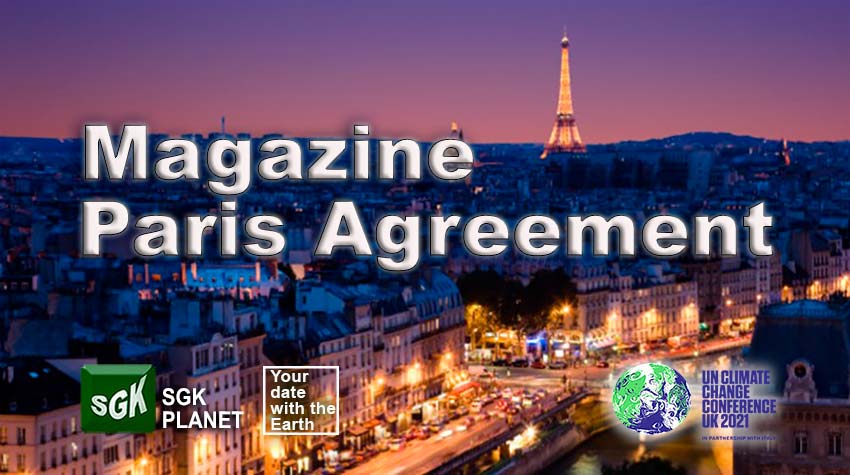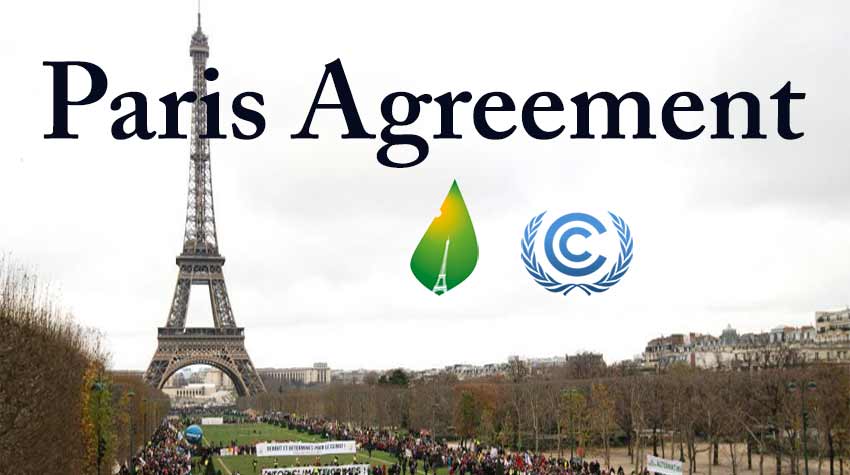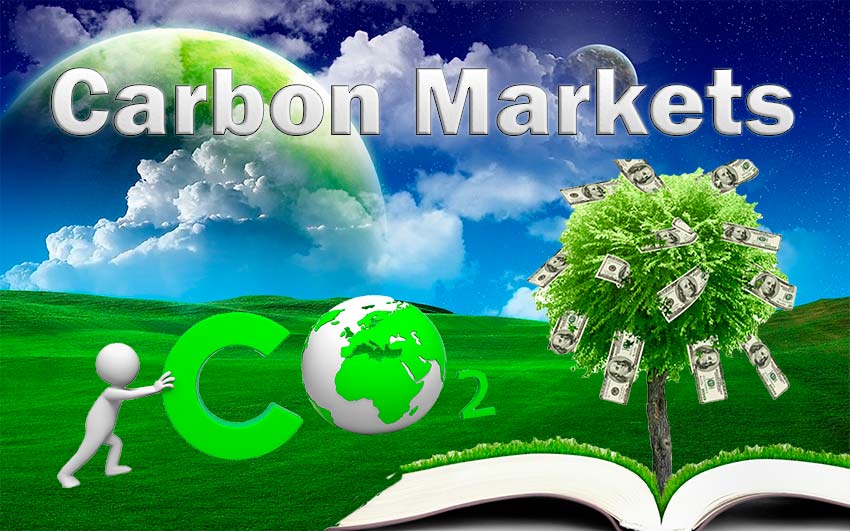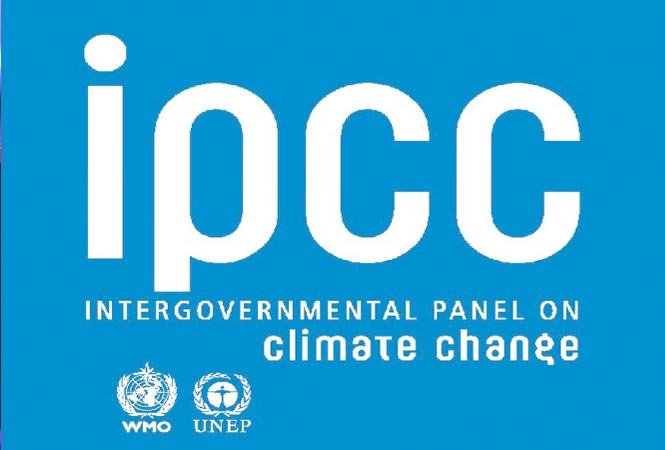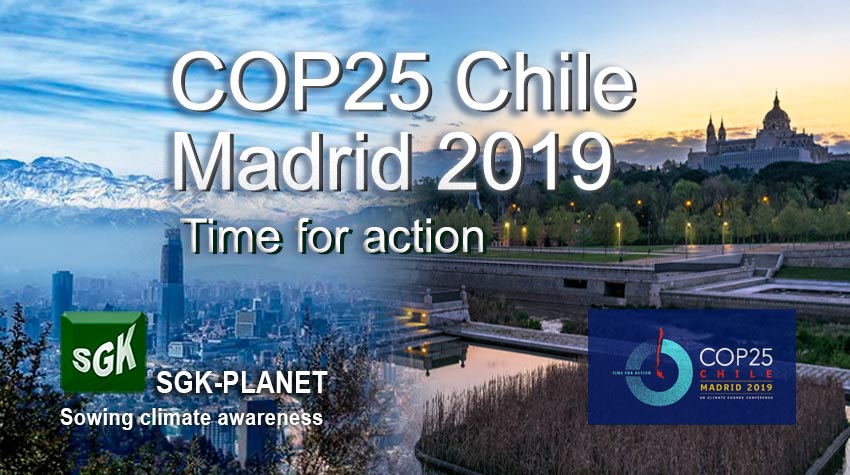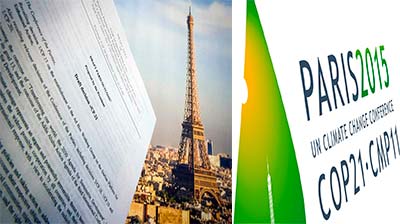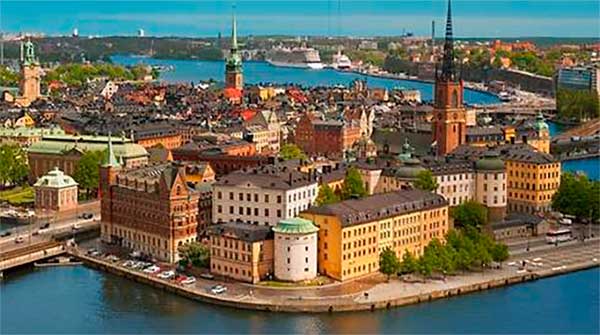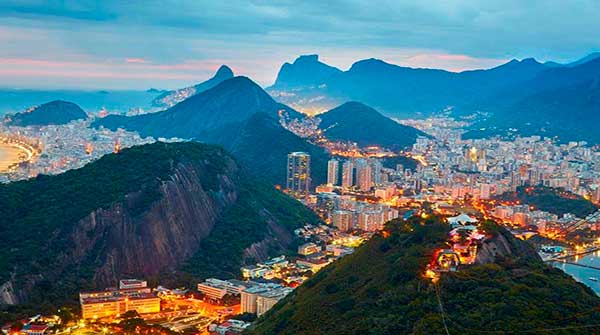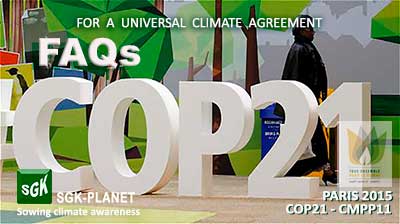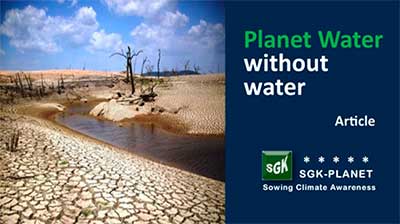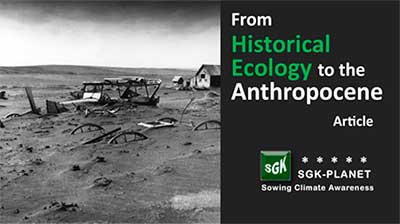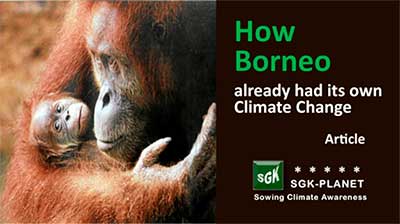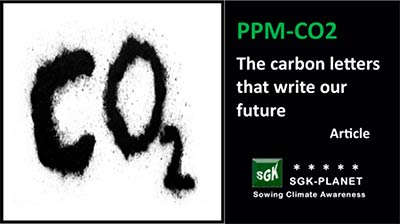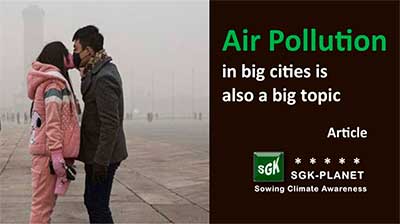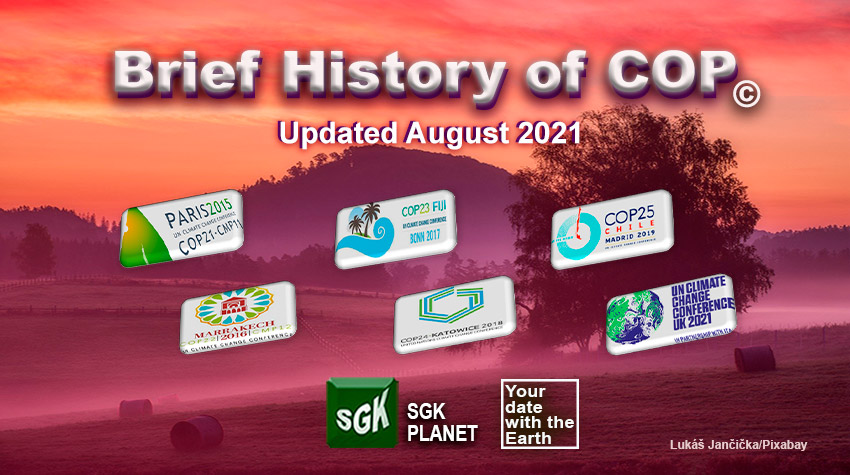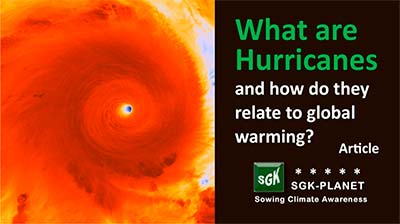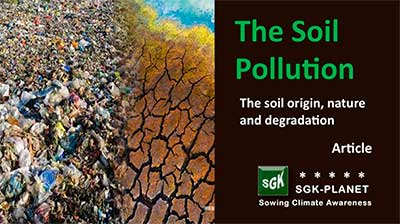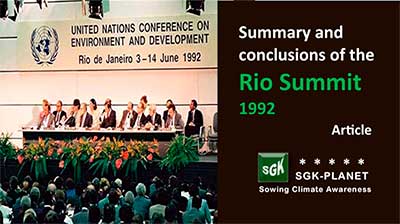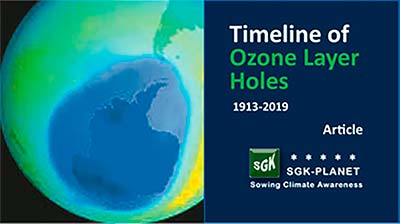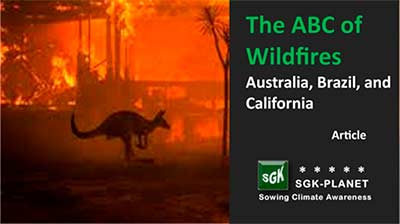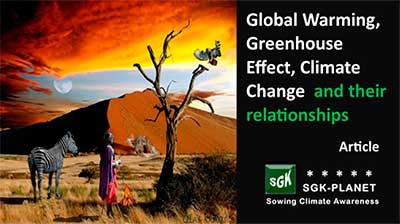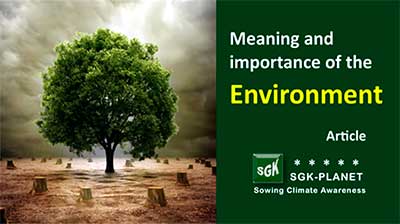Special Report 2021. The Paris Agreement
About the Paris Agreement, COVID-19 and COP26 Glasgow 2021
The objective of this report is to provide our readers with updated information and data about the Paris Agreement and the COP26, the climate conference, suspended in 2020 by COVID-19, which will be held in Glasgow from 1 to November 12. We include in this report our analysis “Strengths and weaknesses of the Paris Agreement”.
What were the controversial issues at COP25
Climate ambition
If we are guided by the declarations of the main officials of COP25, we must admit that the objectives were not on par with the expectations that were had before the Conference.
Carbon markets
In the regulation of carbon markets is included in article 6 of the Paris Agreement. The unprecedented two-day extension of COP25 was due to the discussions generated around this controversial sixth number.
Land and Ocean use
The text on the subject recognizes the importance of the oceans and soils in the climate system based on the 2019 IPCC reports. The discussion was postponed to 2021 due to the COVID-19 pandemic.
What issues from COP25 were left pending for COP26?
The unprecedented two-day delay of COP25 was due to the resistance of Brazil in accepting the document related to the theme “Land use and oceans”. Finally, minimum agreements were reached, but they will be discussed again at COP26.
Recommended Readings
Summary and Conclusions of
COP25 Chile-Madrid 2019
Proposal of SGK-PLANET to curb
Climate Change
Strengths and weaknesses of the Paris Agreement
The Paris Agreement the hope of humankind
For now, the document is the only thing we have
at hand to win the guame against climate change
While it is true that many people are expectant about the Paris Agreement, among other things because of its starting difficulties, it is also true that it is an extremely powerful document, accepted by almost every nation on the planet. It is a universal agreement that establishes measures to reduce greenhouse gas emissions. This in itself is an important strength, since for now there is no other agreement that surpasses it. Read more…
Climate ambition is the fundamental guideline
of the Paris Agreement
To achieve the goal of limiting global temperature to 2 °C, based on the year 1750, and adjusted to 1.5 °C in 2018. The global objective of the Paris Agreement is subordinate to the sum of the national ambitions of the 197 parties. This, in theory, should be enough to stop the planet’s global warming and prevent climate change from becoming uncontrollable. To do this, three major difficulties must be overcome. Read more...
The failure of the Paris Agreement would be the failure of Homo sapiens. If we do not reverse the increase in global warming and we do not support sustainability on our planet, we will all be losers. There are clear indications that we are going in a opposite direction to the 2015 agreements, as can be seen in this paper. The increasing fever of the fracking, due to the cheapening of the processes of extraction of the shale gas and the shale oil, added to the enormous found deposits is not good news. Neither are the millions of liters of water required to activate each well through hydraulic fracturing, a technology. Read more...
What is
the campain
“Race to Zero”?
On June 5, 2020, World Environment Day, the UN made the “Race to Zero” campaign official, with the goal of reaching net zero emissions by 2050 or earlier. This campaign is aimed at providing the Paris Agreement with a basis in the "real economy" for the fight against climate change, with the participation of a large number of cities, regions, companies, large investors and universities that will participate "for a recovery healthy, resilient and carbon-neutral, creating jobs, unlocking inclusive and sustainable growth and reducing the risk of future shocks, ”according to the UNFCCC.
Origins of the Paris Agreement and the half century of waiting
First Earth Summit
The Stockholm Declaration,
on the road to half a century
In June 1972, at the initiative of Sweden, the First Earth Summit was held, in conjunction with the UN. There the "Stockholm Declaration" was produced, comparable to the Declaration of Human Rights, oriented towards the normalization of the relations of human beings with the environment... Read more
Second Earth Summit
Summary and conclusions of
the Rio 92 Summit
The Rio Summit was a fundamental meeting, more important than most people think. In Río de Janeiro set the foundations for the fight against climate change and face the threats that loom over life on Earth, with a view to the 21st century. The (UNFCCC) was established in Rio and the creation of the COP, was agreed as its supreme body... Read more
The Kyoto Protocol
The Kyoto Protocol,
the great missed opportunity
At the long-awaited COP 15, Copenhagen 2009, meeting in which immense hope was placed, for the activation of the Kyoto Protocol. However, the momentous document, after going through a tortuous path, culminated in its collapse. (From our Brief History of The COP - 2009, COP15)... Read more
And now… Towards COP26 Glasgow 2021
Will it be up to the Scottish city to reach an agreement on the issues of contention
at COP25 and put the Paris Agreement in motion? We hope it is.
See our Special Report 2021 - COP26 Glasgow 2021

Paris Agreement in few words
The Paris Agreement in videos

Is the Paris Agreement credible?
How the Paris Agreement was reached

How was the route to COP21 in 2015?
The three keys: mitigation, adaptation, and resilience
Climate Conference Center
SGK PLANET Exclusive
*COP21 * COP22 *COP23
*COP24 *COP25 *COP26
*STOKHOLMO 72 *RIO 92
*KYOTO 2007 *PARIS 2015
Frequently Asked Questions - Articles
Image Gallery - Infographics
Video Gallery
Recommended Reading
Brief History of the COPs
FAQs about COP21, the birthplace of the Paris Agreement
From Kyoto to Paris, history of two climate agreements

From the reconstruction of the 1950s to the climate emergency of the 2020s
The early 1950s were times of mixed feelings. World War II was just over. The smell of gunpowder had not vanished when the reconstruction of Europe and Japan began. The people, although they did not forget their dead, began to live life in the hope that peace and well-being would be permanent. That vision of a better world made many begin to have children. The "baby boom" did not wait, and the population doubled in just forty years, a growth never seen in the history of mankind. From three billion inhabitants in 1960 the population went to six billion in 2000. As if that were not enough, the needs multiplied more than the people. The consumer society, the cheaper products, the new publicity and the massification of television increased the pressure on the resources available on the planet. Cars and airplanes reproduced like mushrooms, emitting jets of CO2 into the atmosphere. Forests began to deforest in a hostile way to satisfy the construction, furniture and paper markets. The spaces left by the felling of trees were occupied by agriculture and cattle raising, with which thousands of ecosystems were erased from the map...
Read more.
Towards a state of global climate emergency?
On December 12, 2020, coinciding with the fifth anniversary of the Paris Agreement, the Summit on Climate Ambition was held, a virtual meeting between more than seventy countries. During the event, the Secretary General of the United Nations, António Guterres, was emphatic when expressing: "Can anyone still deny that we are facing a dramatic emergency? For this reason I ask world leaders to declare a state of climate emergency in their countries until they reach carbon neutrality."
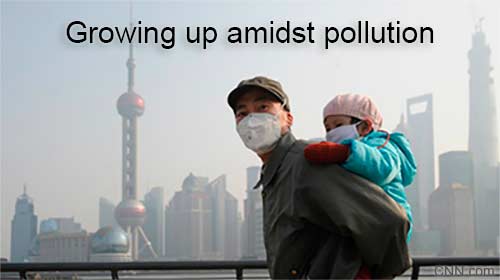
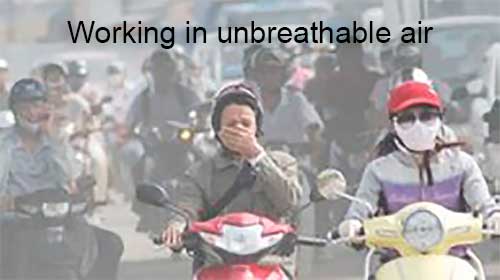
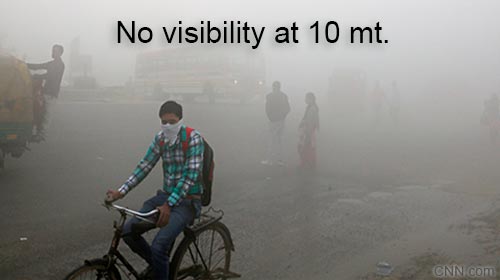
Our spreading action
References
Proyecto Zero - La carrera hacia un mundo sin emisiones exige velocidad
https://elpais.com/elpais/2020/12/10/actualidad/1607611345_647187.html
Race to Zero Dialogues on Energy
https://www.irena.org/events/2020/Nov/Race-to-Zero-Dialogues-on-Energy
Meet the Champions.
https://unfccc.int/climate-action/marrakech-partnership/actors/meet-the-champions
Race to Zero launch: Climate Leadership After COVID-19 Framing the New Growth Agenda for Economies, Cities
Businesses and Civil Society
Join the Race
https://racetozero.unfccc.int/
Wikipedia



